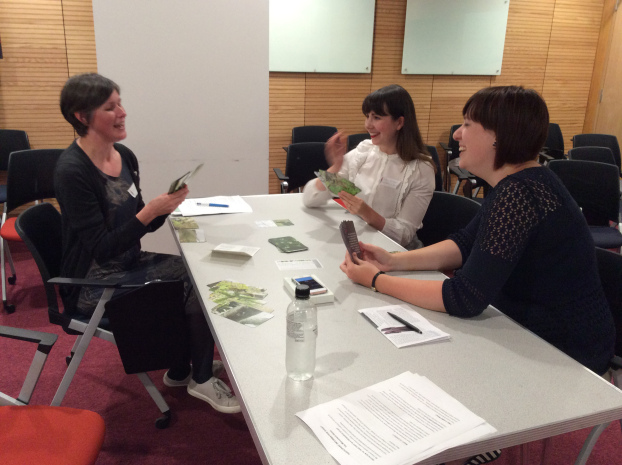 WHAT IS BURNOUT?
WHAT IS BURNOUT?
You might have said or heard someone say that they feel “burnt out” after a long hike or several task-filled days. Chances are that there is some self-awareness in this personal observation. The person knows that they’re tired and that they will now have to rest to get back to feeling their best.
Unfortunately, experiencing burnout is much more serious. It often creeps up on caregivers who have not been practising self-care and the mindfulness needed to know that they need to slow down and get support.
According to HelpGuide.org, “burnout is a state of emotional, mental, and physical exhaustion caused by excessive and prolonged stress. It occurs when you feel overwhelmed, emotionally drained, and unable to meet constant demands. As the stress continues, you begin to lose the interest and motivation that led you to take on a certain role in the first place. Burnout reduces productivity and saps your energy, leaving you feeling increasingly helpless, hopeless, cynical, and resentful. Eventually, you may feel like you have nothing more to give.”
5 SYMPTOMS OF BURNOUT*CHRONIC FATIGUE | “In the early stages, you may feel a lack energy and feel tired most days. In the latter stages, you feel physically and emotionally exhausted, drained, and depleted, and you may feel a sense of dread for what lies ahead on any given day.”
FORGETFULNESS/IMPAIRED CONCENTRATION AND MEMORY | “Lack of focus and mild forgetfulness are early signs. Later, the problems may get to the point where you can’t get your work done and everything begins to pile up.”
INCREASED ILLNESS | “Because your body is depleted, your immune system becomes weakened, making you more vulnerable to infections, colds, flu, and other immune-related medical problems.”
ANXIETY | “Early on, you may experience mild symptoms of tension, worry, and edginess. As you move closer to burnout, the anxiety may become so serious that it interferes in your ability to work productively and may cause problems in your personal life.”
ANGER | “At first, this may present as interpersonal tension and irritability. In the latter stages, this may turn into angry outbursts and serious arguments at home and in the workplace.”
If you are reading this and feel that you are already experiencing burnout, you must get help immediately. Visit your family doctor or see a counsellor of therapist to get support and create a path to wellness.
HOW TO PREVENT BURNOUTWe regularly encourage caregivers to learn and practice the skills needed to take care of themselves so that they can take care of their loved ones. Practicing self-care is a journey, and it is common to at times feel that you are taking care of yourself as well as you could be, and at other times to be struggling. That said, there are lots of things that you can regularly do to prevent burnout. Here are a few tips:
PRACTICE GOOD SLEEP HYGIENE | Drink calming teas, turn off screens an hour before sleeping, and avoid stimulants like caffeine and alcohol close to bedtime.
EXERCISE | Just half an hour of gentle exercise a day can ease stress, promote sleep, and aid digestion. Park further away from your destinations, or go for a short walk after your morning coffee. Find creative ways to fit activity in to your day.
DELEGATE | You can not do it all alone. If you are lucky, you have friends and family that help care for your loved one. Talk to them and let them know that you could use some more support. Be specific, and delegate tasks and chores. If you do not feel that you have friends and family to ask for support from, you still have options. Look in to low-cost home care services or respite.
What do you do to practice self-care and prevent burnout? We’d love for you to share your perspective with our caregiving community!
Cassandra Van Dyck
*From Psychology Today.
Advertisements Share this:




